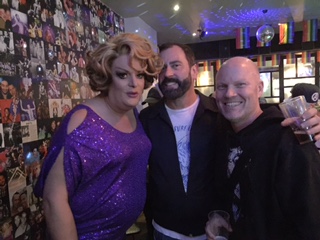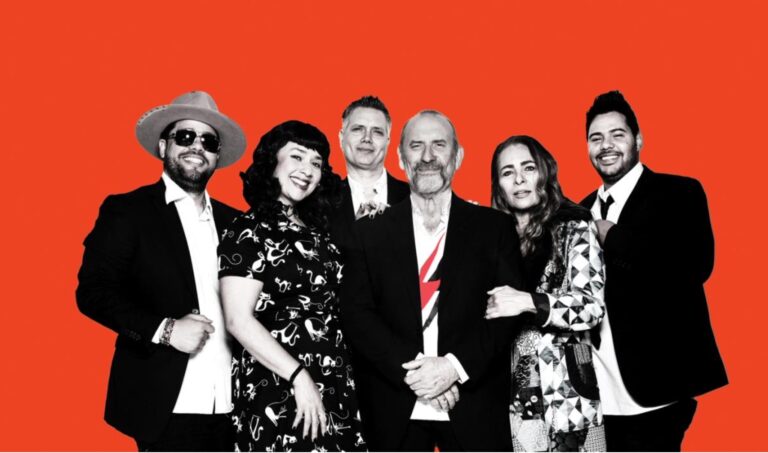
Midnight Shift the latest casualty of nanny state

BY LAWRENCE GIBBONS
This weekend one of Sydney’s oldest and largest gay night clubs closed its doors permanently. The downstairs bar at the Midnight Shift ceased trading on the weekend, and the pub is on the market. For the time being the upstairs dance venue will remain open on weekends for special events.
On the evening of Sunday July 2nd — on a bitterly cold winter’s night — gay men and their friends crowded into the iconic Oxford Street bar for an old-fashioned wake. Hundreds of bears, twinks, rice queens, leather daddies and drag divas partied to pumping disco classics from a bygone era, to say goodbye for the last time.
For 35 years the Midnight Shift has sat at the epicentre of Oxford Street, Sydney’s gay strip. The loss of another large gay bar which was a large queer employer is a major blow to the local gay community. Since the State government introduced lockout laws three years ago, the number of gay bars on and around Oxford Street has plummeted with the Exchange, the Flinders, the Gay Bar and now the Midnight Shift closing-down and other once popular venues on Oxford Street struggling to survive.
Jackie McMillan co-founder of the Hellfire Club has watched Oxford Street’s decline first hand. Over the last eight years, the popular fetish event has been forced to move five times due to club closures on and around the strip. Last year the Hellfire relocated to the Midnight Shift after the Exchange Hotel closed. Now that the Midnight Shift has permanently closed its downstairs bar, the Hellfire’s long-term future on Oxford Street is in doubt. While McMillan has been assured that they can continue to have Hellfire events upstairs at the Shift, there are no guarantees the good times will roll on for long.
McMillan’s partner, Craig Donarski, the Director of the Casula Powerhouse believes that the inner city is being killed off by the twin forces of gentrification and gerontification. “Wealthy older people are moving from the suburbs into areas traditionally occupied by younger gay and artistic left of centre types. As older people take up residence in the city centre, they are creating a city to meet the needs of senior citizens. These are the people who most stridently support lockout laws,” he said.
Lockout laws were originally introduced to control the loutish behaviour of a few drunken hoons in the Cross, but Sydney’s queer bars have become collateral damage. While bar brawls and antisocial conduct may be features of some unsavoury straight drinking venues, gay bars have long served as safe spaces for the LGBTIQ community.
Much of the blame for the decimation of Sydney’s gay scene rests with a right-wing State government, who has killed off the city’s once vibrant night life (both gay and straight). Still, the City of Sydney has done little to revive the fortunes of the City’s once vibrant gay strip. As the largest property owner on Oxford Street from Taylor Square to Hyde Park, the City has had good reason to market the area. But the City is loath to promote its urban precincts. As vacancies on the gay strip have risen, pop-up shops and office space have been leased out to creative and cultural industries. But the City has done nothing to help drive traffic to the street. Currently, Town Hall is considering a proposal to kill most marketing dollars spent on its village precincts, including Oxford Street.
To understand Town Hall’s role in devastating the once pumping Oxford Street gay district, consider the City’s ill-fated ownership of the T2 building on Taylor Square. The basement of the building was once home to a thriving leather club, the Barracks: a subterranean bar with an edgy ambience still on offer in Berlin, Amsterdam or New York. In 2009 the City purchased the building to reduce late night anti-social behaviour. For seven years the building sat underutilised. Last year the City resolved to sell the T2 building back into private hands.
For the last few years our glitzy city has been going to bed early. Suddenly Sydney is looking tired. We have started losing our edge in unexpected ways. According to a global ranking of world cities released last week, Sydney is no longer Australia’s number one gay city: That honour went to Melbourne which is ranked as the world’s 14th best city for gay men and lesbians; Sydney was ranked 32nd, behind Edinburgh, Stockholm and Helsinki.
To commemorate the 48th anniversary of the Stonewall riots and to celebrate LGBT pride month in June, the online accommodation service Nestpick conducted an extensive survey of gay global cities, ranking them on the basis of openness, nightlife, safety, dating and LGBT rights. The study found the world’s top 10 gay cities were: 1) Madrid 2) Amsterdam 3) Toronto 4) Tel Aviv 5) London 6) Berlin 7) Brighton 8) Barcelona 9) New York City 10) San Francisco.
Melbourne was ranked 14th behind Paris, Montreal and Manchester.
If you believe that Sydney is more cosmopolitan than our southern sister, consider this: For LGBT nightlife Sydney was ranked as the world’s 25th best city. Melbourne came in fourth behind Berlin, London and New York. The Emerald City is fast losing its bling.
Ultimately all tiers of government are to blame for Sydney’s low rating as a leading gay city, including the Federal government which has stood in the way of legalising same-sex marriage in Australia. Our national reputation for tolerance and inclusiveness has been badly tarnished by a cowardly, conservative Federal government.
The world’s best global cities embrace diversity. Richard Florida, the American social scientist argues that in order to compete for creative talent with a highly mobile global workforce, truly successful cities need to offer inhabitants and visitors alike a dynamic and multi-faceted urban environment. Florida argues that one of the indicators of whether a city will attract “the creative class” is whether it has a vibrant gay neighbourhood. Creative professionals seek bohemian, non-mainstream environments in which to live, work and play. Ultimately the world’s most successful global cities have thriving gay districts. Sydney can no longer afford to be second best.









